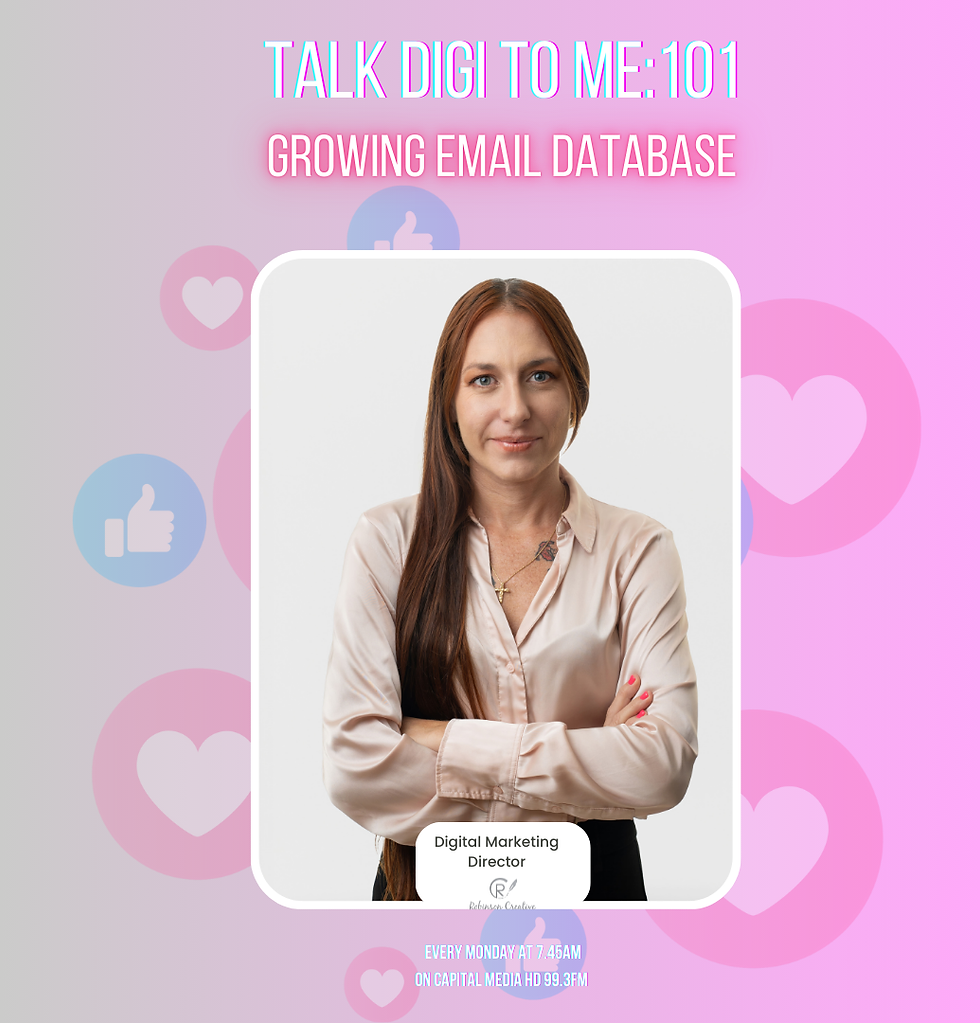Demystifying SEO: A Beginner's Guide to Digital Success with Robinson Creative
- Carlie Robinson

- May 9, 2024
- 4 min read
Updated: Jun 22, 2024
Seen those three little letters around and want to find out more about S-E-O? You're in the right place.
Welcome to the world of Search Engine Optimization (SEO), where the right strategies can unlock the digital potential of your business. I'm Carlie Robinson, owner of Robinson Creative, a digital firm based in beautiful Barbados. Today, I'll be your spirit guide on this journey to demystifying SEO!
OK, let's break down some essential terms:
Keywords: Keywords are words or phrases that users type into search engines when looking for information, products, or services. These terms are the foundation of SEO, as they help search engines understand the relevance of your content to user queries. For example, if you're a hotel in Barbados, your keywords might include phrases like "luxury accommodations in Barbados" or "beachfront resorts in Bridgetown." By strategically incorporating these keywords into your website's content, you can improve your chances of ranking higher in search results and attracting relevant traffic.
Meta Description: A meta description is a brief summary of a web page's content that appears below the title tag in search engine results pages (SERPs). This snippet of text provides users with a preview of what they can expect to find on the page and plays a crucial role in enticing them to click through to your site. Effective meta descriptions are concise, compelling, and accurately reflect the content of the page. According to research by Backlinko, pages with meta descriptions generate higher click-through rates, making them an essential component of on-page SEO.
Title Tag: A title tag is an HTML element that specifies the title of a web page. It appears as the clickable headline in search engine results pages (SERPs) and serves as a crucial factor in determining the relevance of your page to user queries. Title tags should accurately describe the content of the page while incorporating targeted keywords to improve search engine visibility. According to a study by Moz, pages with optimized title tags tend to rank higher in search results, highlighting the importance of crafting compelling and keyword-rich titles for SEO success.
Now that we've covered some fundamental terms let's delve into the different types of SEO and their importance:
Local SEO: Local SEO focuses on optimizing your online presence to attract local customers in your geographic area. For businesses in Barbados, harnessing the power of local SEO is crucial for connecting with potential customers right in your neighbourhood. One essential tool for local SEO is Google My Business. By claiming and optimizing your Google My Business listing with accurate information, photos, and customer reviews, you can increase your visibility in local search results. In fact, according to Google, businesses with complete and accurate listings are twice as likely to be considered reputable by users.
Technical SEO: Technical SEO involves optimizing the technical aspects of your website to improve its search engine visibility. From site speed and mobile-friendliness to crawlability and indexability, technical SEO ensures that search engines can easily crawl, interpret, and index your site's content. For example, optimizing your website's code, implementing schema markup, and fixing broken links are all technical SEO tactics that can enhance your site's performance. According to a study by Backlinko, pages with fast loading times tend to rank higher on Google, highlighting the importance of technical SEO for improved search rankings. If this part sounds tricky, don't worry - we take care of all of this for you!
On-Page SEO: On-Page SEO focuses on optimizing individual web pages to rank higher and earn more relevant traffic. This involves optimizing elements such as meta descriptions, title tags, headers, and URL structures to align with targeted keywords. For instance, writing character-and-keyword-perfect meta descriptions and title tags that accurately describe your content, improve click-through rates and encourage users to visit your site. According to research by HubSpot, meta descriptions that are between 50-160 characters tend to generate the highest click-through rates, emphasizing the importance of concise and informative meta tags for SEO success.
Off-Page SEO: Off-Page SEO refers to activities conducted outside of your website to improve its search engine rankings. One of the most crucial aspects of off-page SEO is building high-quality backlinks from authoritative websites. Backlinks serve as votes of confidence from other sites, signaling to search engines that your content is valuable and trustworthy. As a result, earning backlinks from reputable sources can significantly boost your site's authority and rankings. According to Moz, backlinks are one of the top three ranking factors for Google, highlighting their importance in off-page SEO strategies.
SEO Content: SEO content involves creating high-quality, relevant content that aligns with your target audience's needs and interests while incorporating targeted keywords. Whether it's blog posts, articles, or product descriptions, SEO content plays a crucial role in attracting organic traffic and engaging users. By conducting keyword research and optimizing your content with strategically placed keywords, you can improve your chances of ranking higher in search results. According to a study by Content Marketing Institute, businesses that prioritize content marketing efforts are six times more likely to see higher conversion rates.
Hope this was helpful! Anytime you want to understand more about Search Engine Optimisation or here what we can do for your business please do get in touch. I'm just a click away!
Get in touch at myrobinsoncreative@gmail.com




Comments